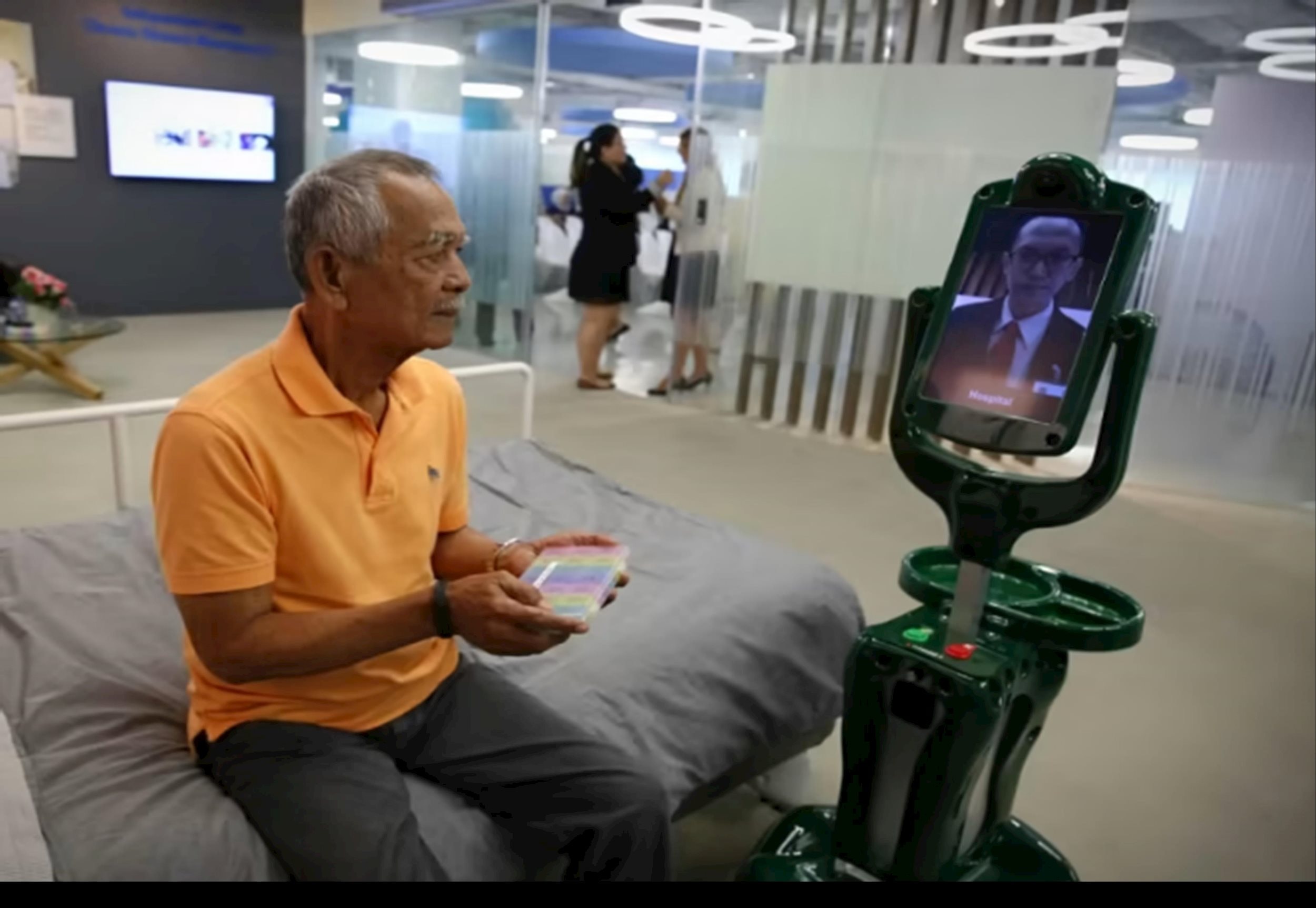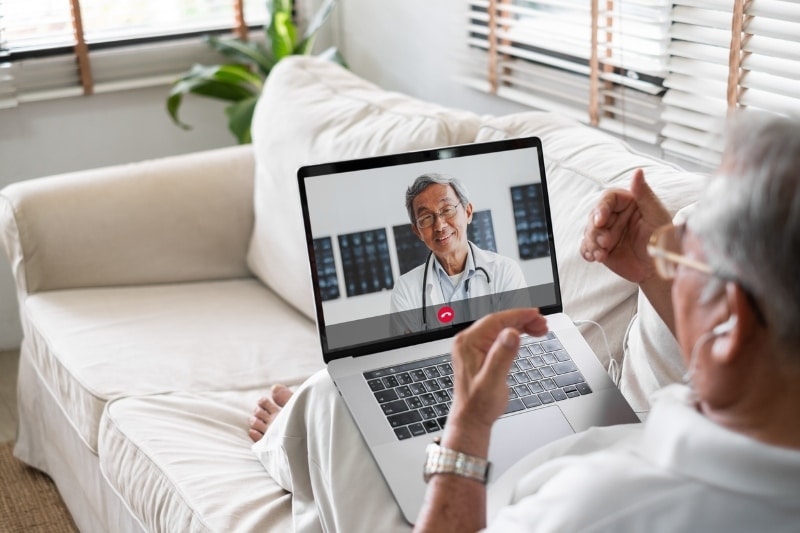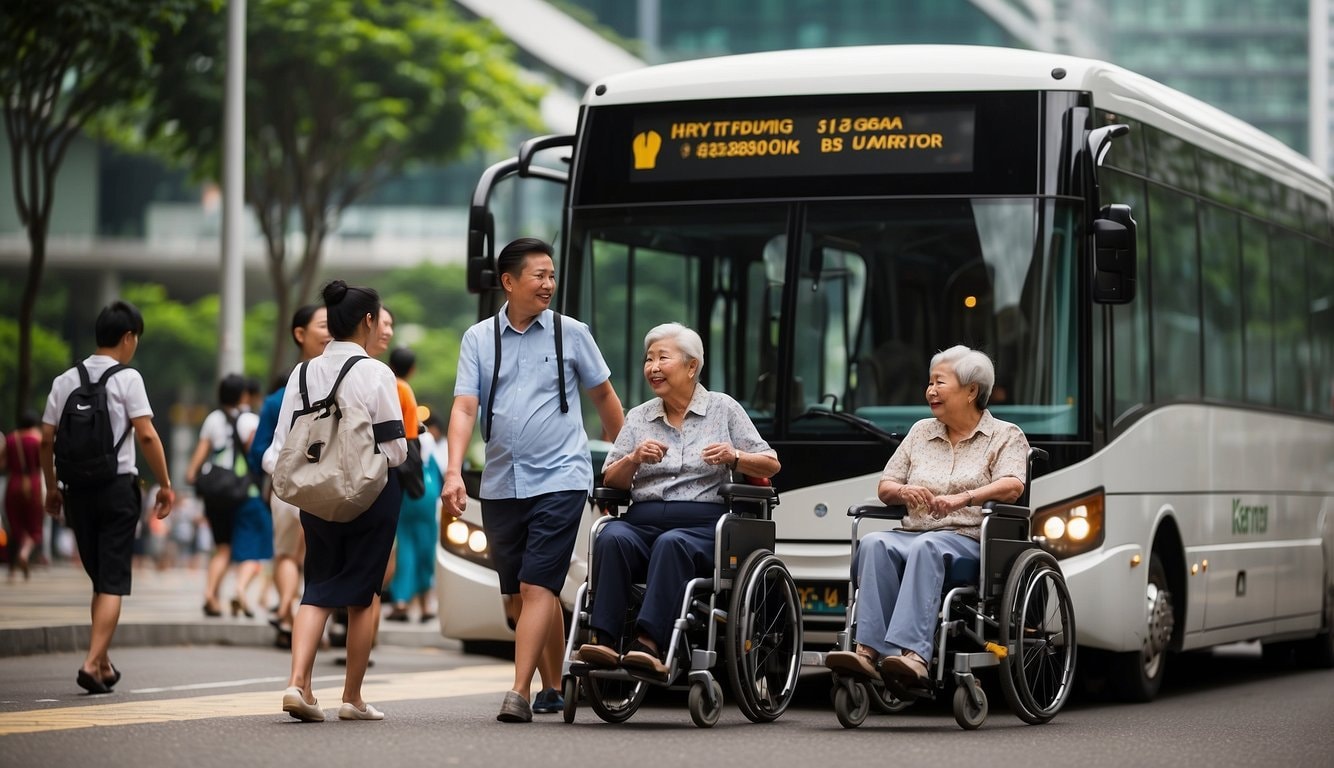How do technological advances help Singapore's aging society?
With an increasingly aging population, Singapore is facing new challenges. However, along with that comes the remarkable development of technology, opening up new opportunities to improve the quality of life for the elderly.
With a population of 5.8 million, Singapore is undergoing a profound transformation thanks to the application of advanced technology. While the digital revolution is dramatically changing businesses, government operations and promoting the fourth industrial revolution, many other technologies such as artificial intelligence (AI), Internet of Things (IoT) and robotics are also contributing to improving the quality of life of the elderly.
According to the Population Brief 2024, the proportion of people aged 65 and above has reached 19.9%, and the Singapore Government is rolling out many programs to help seniors adapt to digital life, such as telehealth applications and technology support centers.

Constant technological innovation is key in supporting an ageing society in Singapore, where many seniors must continue to work instead of retiring to secure their personal finances.
Falling marriage rates, fertility and birth rates are creating a growing labor force shortage, forcing governments to step up immigration policies to fill the gap.
In addition, seniors in Singapore are facing a series of challenges such as limited mobility and ability to handle daily tasks, risk of unexpected falls, financial instability, increasing medical costs, chronic diseases, as well as feelings of loneliness and depression, among other difficulties in life.
Leading technology solutions that can support an aging society in Singapore
It is expected that by 2030, the number of citizens aged 65 and above in Singapore will reach 900,000, of which an estimated 83,000 will live alone.
The aging process makes them vulnerable to health problems, cognitive decline and many other challenges, while younger generations are not always able to place their elderly relatives in assisted living facilities.
Faced with this situation, a series of technological solutions have been and are being developed by Singapore to improve the quality of life for this aging society.
Smart home products
Smart home products are devices and technologies designed to automate, control and manage activities in the home through internet connection or other network protocols. These products are often integrated with sensors, software and connectivity, allowing users to control them remotely through phones, tablets or other control devices.
Seniors in Singapore can enjoy a safe and independent life thanks to an online health management system integrated with smart home devices. This advanced technology uses modern sensors to detect falls and quickly send notifications to medical teams with precise location information, ensuring timely and effective support.
In addition, this technology is also capable of sending notifications to remind the elderly to take medication on time, contributing to taking good care of their health. Anjels, a Singapore-based automation company, provides advanced wireless home management devices, including monitors that support monitoring and care for the elderly.
Budget 2024 earmarks $3.5 billion to promote active living for seniors through the Age Well SG program. This initiative focuses on supporting seniors at home, expanding the network of Senior Care Centers nationwide, and providing diverse programs and services to encourage seniors to participate in social, physical, and educational activities.
In addition, the program also focuses on upgrading infrastructure to create an age-friendly living environment, including improving housing and public spaces to meet their needs.
Robots and support equipment
According to a report from the Information Technology and Innovation Foundation, in 2017, Singapore ranked second globally in terms of industrial robot adoption, showing that the country is leading the way in integrating advanced technology into life and production.
Under the Smart Nation Singapore initiative, assistive technologies and robots are designed to meet the growing needs of the elderly, especially those with mobility difficulties or disabilities.

These technologies not only improve the overall health of seniors, but also enhance the quality of care and convenience in daily life. For example, rehabilitation robots help patients perform physical therapy exercises more accurately and effectively.
At the same time, devices such as automatic shower machines are developed to support personal hygiene, bringing safety, comfort and autonomy to users. These initiatives play an important role in building a smart and elderly-friendly living environment in Singapore.
Telemedicine and healthcare wearables
Using a telemedicine platform offers a comprehensive solution, allowing doctors and patients to connect and conduct remote consultations without the need for face-to-face meetings.
This not only improves the quality of patient care but also simplifies the process of accessing and sharing medical data, helping doctors grasp patient health information quickly and accurately.
At the same time, the platform supports remote assessment and diagnosis, expanding access to medical services, especially for those living in remote areas or having difficulty traveling.

In addition, smart healthcare wearables play an important role in improving the quality of remote care, especially for the elderly in Singapore.
These devices continuously monitor important health indicators such as heart rate, blood pressure, or activity levels and automatically send data to doctors or loved ones when abnormalities are detected.
In addition, they are also equipped with fall detection features, which help to provide timely warnings in case of accidents, thereby ensuring safety and immediate emergency support for the elderly.
The combination of telemedicine and smart healthcare wearables is taking a big step forward in delivering smart and personalized healthcare services in Singapore.
AI-powered healthcare solutions
AI is revolutionizing Singapore's healthcare system, playing a key role in optimizing and improving the quality of medical services.
One of the prominent applications of AI is automating the drug distribution process and inventory management at medical facilities, helping to ensure stable supply, minimize errors and save time for medical staff.
In addition, AI also supports personalized healthcare by analyzing each patient's health data to provide treatment solutions that best suit specific needs and conditions.
In particular, AI strongly supports clinical decision-making through its ability to process large volumes of medical data. Advanced AI systems can analyze medical images such as X-rays, magnetic resonance imaging (MRI) or computed tomography (CT) scans with high accuracy, helping doctors detect early signs of abnormalities.
In addition, AI also mines patient data from various sources to predict the risk of future diseases, especially in the elderly, helping to establish timely preventive measures and interventions. This not only improves the quality of care but also reduces the cost burden on the health system, while helping the elderly maintain their health and improve their quality of life.
Smart mobility options
Singapore has rolled out a number of senior-friendly initiatives to support mobility and healthcare. For example, the Government Assisted Living Ecosystem (GALE), which provides care and support services to seniors, helping them maintain independent and safe living at home or in the community.

GALE integrates various technologies and medical services to improve the quality of life of the elderly, especially those with special care needs. The system also provides remote care services via phone and online platforms, allowing the elderly to easily contact medical staff or receive emergency assistance anytime, anywhere.
In addition, the 2024 budget also provides funding for the development of senior-friendly transport infrastructure, including wheelchair-accessible public transport, along with many other improvements to enhance the quality of life and convenience for this group.
How does technology impact Singapore's aging society?
While technology has brought significant improvements in healthcare and quality of life, there are still some major challenges, including high costs, security and privacy concerns, and the risk of attacks from hackers.
To address these issues, Singapore will need a larger pool of professionals to manage and implement technological changes. In addition, seniors will need to be properly trained on how to use new technologies, how to troubleshoot faulty devices, and how to access health information securely.
Additionally, medical technicians may need assistance in explaining medical test results in a clear and understandable manner to ensure that people, especially the elderly, can understand and apply this information properly.
Additionally, cutting-edge technology in Singapore has great potential to transform not only quality of life but also create a comprehensive, senior-friendly digital environment.
Technology solutions also provide safety, remote monitoring, and timely support, helping seniors manage their medication schedules effectively. At the same time, technology also enables them to maintain social connections, reduce the risk of loneliness, and create a more independent and connected life.
In particular, technological innovation can help develop more accessible and affordable devices through mass production, and localize AI solutions in languages and interfaces appropriate for seniors.





